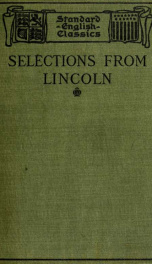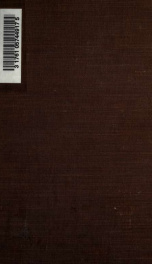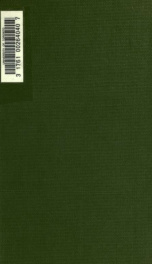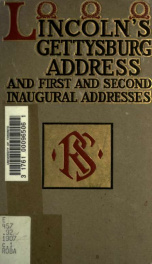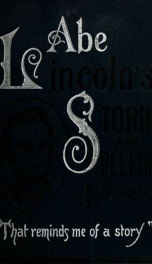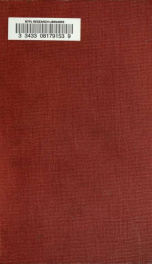Introduction / Ida M. Tarbell -- Views on money-loaning, education, and ;lawmaking -- Political views in 1836 -- First public protest against slavery -- Letter to Williamson Durley -- Letter to William H. Herndon, his law partner, reproving his for suspicion of others -- Reflections on seeing Niagara Falls (1848) -- Notes on the practice of law (1850) -- Letter to John D. Johnson (January 2, 1851) -- Letter to John D. Johnson (November 4, 1851) -- Hope, the inspiration of labor -- Repeal of the Missouri Compromise, right of self-government after the defeat of 1856 -- "A house divided against itself" -- Equality of white and black races -- Republican and Democratic principles compared -- Lincoln's autobiography -- Slavery as the fathers viewed it -- Farewell speech to his friends in Springfield -- The perpetuity of the Union -- Lincoln's reply to Secretary Seward's offer to become the Head of the Administration -- On the relation of labor and capital -- Message to Congress recommending Compensated Emancipation -- Letter to Horace Greeley -- Sabbath observance -- Extract from Annual Message -- Emancipation Proclamation -- Letter to General Joseph Hooker -- Proclamation for a National Fast Day -- Letter to General U.S. Grant -- Letter stating his position in regard to the war and to emancipation -- Proclamation for Thanksgiving -- The Gettysburg Address -- Amnesty for those in rebellion -- Suggesting that intelligent Negroes be admitted to the Elective Franchise -- Review of slavery policy -- Letter to General U.S. Grant -- Letter to Mrs. Bixby -- Extract from Annual Message -- Part of the Second Inaugural Address -- The Reconstruction of the Southern States Monaghan, J. Lincoln bibliography Oakleaf, J. Lincoln bibliography [4] p. of the publisher's advertisements at end Bound in cloth; frontispiece 18
